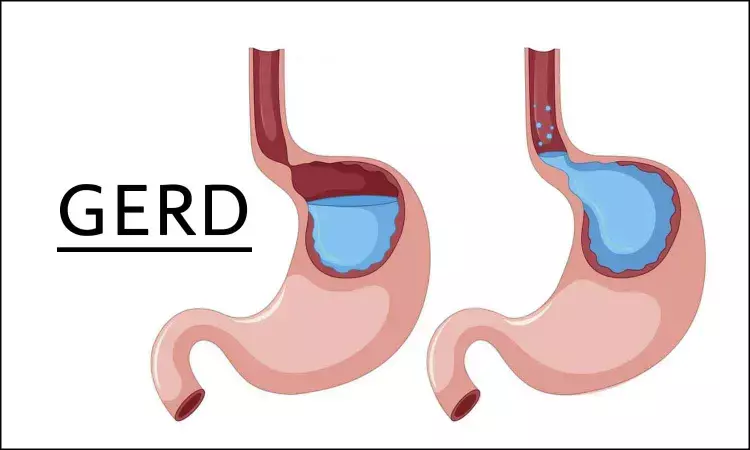- Home
- Medical news & Guidelines
- Anesthesiology
- Cardiology and CTVS
- Critical Care
- Dentistry
- Dermatology
- Diabetes and Endocrinology
- ENT
- Gastroenterology
- Medicine
- Nephrology
- Neurology
- Obstretics-Gynaecology
- Oncology
- Ophthalmology
- Orthopaedics
- Pediatrics-Neonatology
- Psychiatry
- Pulmonology
- Radiology
- Surgery
- Urology
- Laboratory Medicine
- Diet
- Nursing
- Paramedical
- Physiotherapy
- Health news
- Fact Check
- Bone Health Fact Check
- Brain Health Fact Check
- Cancer Related Fact Check
- Child Care Fact Check
- Dental and oral health fact check
- Diabetes and metabolic health fact check
- Diet and Nutrition Fact Check
- Eye and ENT Care Fact Check
- Fitness fact check
- Gut health fact check
- Heart health fact check
- Kidney health fact check
- Medical education fact check
- Men's health fact check
- Respiratory fact check
- Skin and hair care fact check
- Vaccine and Immunization fact check
- Women's health fact check
- AYUSH
- State News
- Andaman and Nicobar Islands
- Andhra Pradesh
- Arunachal Pradesh
- Assam
- Bihar
- Chandigarh
- Chattisgarh
- Dadra and Nagar Haveli
- Daman and Diu
- Delhi
- Goa
- Gujarat
- Haryana
- Himachal Pradesh
- Jammu & Kashmir
- Jharkhand
- Karnataka
- Kerala
- Ladakh
- Lakshadweep
- Madhya Pradesh
- Maharashtra
- Manipur
- Meghalaya
- Mizoram
- Nagaland
- Odisha
- Puducherry
- Punjab
- Rajasthan
- Sikkim
- Tamil Nadu
- Telangana
- Tripura
- Uttar Pradesh
- Uttrakhand
- West Bengal
- Medical Education
- Industry
Both fundoplication surgeries equally effective in improving quality of life of GERD patients

Sweden: In the long run, partial fundoplication (PF) and complete fundoplication (TF) are equally successful at controlling gastroesophageal Reflux disease (GERD) and improving quality of life, says an article published in the Journal of American Medical Association - Surgery.
Fundoplication procedures have been shown to be effective in the treatment of gastroesophageal reflux disease. However, when comparing various forms of fundoplication, there are few prospective, controlled studies that describe long-term (>10 years) effectiveness and post-fundoplication problems. Apostolos Analatos and colleagues conducted this study to compare long-term (>15 years) outcomes in terms of mechanical complications, reflux control, and quality of life between patients who underwent posterior PF or TF in surgical intervention for GERD.
From November 19, 2001, through January 24, 2006, a single site (Ersta Hospital, Stockholm, Sweden) conducted a double-blind randomized clinical study. A total of 456 participants were included in the study and were randomly assigned. The data for this study was gathered between August 1, 2019 and January 31, 2021. The major intervention was a laparoscopic 270° posterior PF vs 360° TF application to the individuals. After more than 15 years, the key outcome was dysphagia ratings for solid and liquid meal items. Quality of life and proton pump inhibitor use was measured both generically (36-Item Short-Form Health Survey) and disease-specifically (Gastrointestinal Symptom Rating Scale).
The key findings of this study were as follows:
- Relevant data were gathered from 310 of the 407 patients that were accessible.
- A total of 159 were assigned to a PF, while 151 were assigned to a TF.
- The average time spent following up was 16 years.
- Mean dysphagia ratings were low for both liquids and solids 15 years following surgery, with no statistically meaningful differences between the groups.
- Both the fundoplications were equally effective in controlling reflux symptoms and improving quality-of-life rankings.
In conclusion, although PF was superior in terms of reduced dysphagia documented in the first year following surgery, this difference did not persist when analyzed a decade later. Nonetheless, this long-term tendency, which has also been documented in population-based studies, is a cause for worry that should be addressed in future research.
Reference: Analatos A, Håkanson BS, Ansorge C, Lindblad M, Lundell L, Thorell A. Clinical Outcomes of a Laparoscopic Total vs a 270° Posterior Partial Fundoplication in Chronic Gastroesophageal Reflux Disease: A Randomized Clinical Trial. JAMA Surg. Published online April 20, 2022. doi:10.1001/jamasurg.2022.0805
Medical Dialogues consists of a team of passionate medical/scientific writers, led by doctors and healthcare researchers. Our team efforts to bring you updated and timely news about the important happenings of the medical and healthcare sector. Our editorial team can be reached at editorial@medicaldialogues.in.
Dr Kamal Kant Kohli-MBBS, DTCD- a chest specialist with more than 30 years of practice and a flair for writing clinical articles, Dr Kamal Kant Kohli joined Medical Dialogues as a Chief Editor of Medical News. Besides writing articles, as an editor, he proofreads and verifies all the medical content published on Medical Dialogues including those coming from journals, studies,medical conferences,guidelines etc. Email: drkohli@medicaldialogues.in. Contact no. 011-43720751


